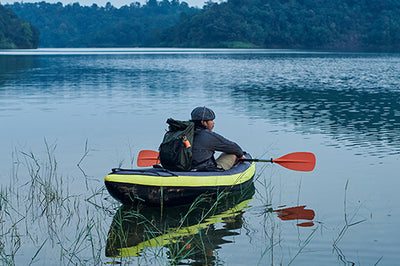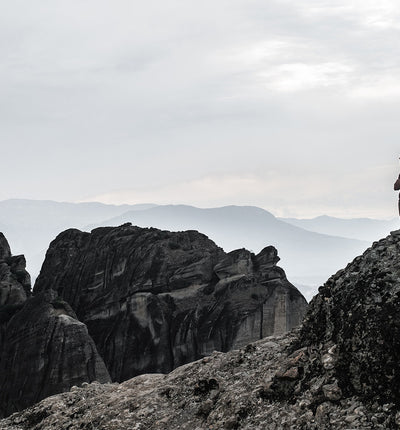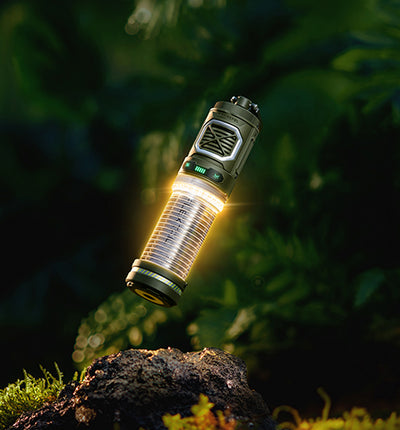Ah, camping! It's all about getting back to nature, roasting marshmallows over a crackling fire, and waking up to the serene sounds of the great outdoors. But hold up—before you pack your bags and head out, ever wonder, "Is camping dangerous?" Well, friend, like any adventure, it comes with its own set of risks. But fear not! With the right know-how and preparation, you can drastically minimize those dangers and enjoy a blissful, incident-free getaway.
In this deep dive, we're unpacking the potential risks of camping and arming you with essential safety tips every camper should know. From wildlife encounters to weather woes, we've got you covered. So, buckle up and let's make sure your next camping trip is as safe as it is memorable.
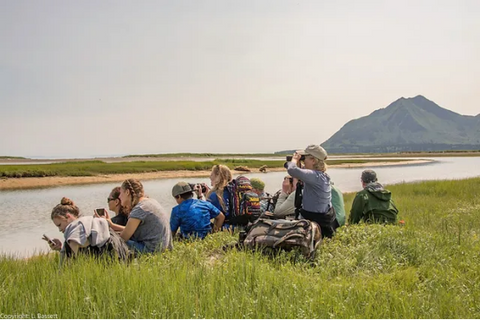
Potential risks of camping and safety tips for campers
Is camping dangerous?
Camping, at its heart, is about exploring the great outdoors, embracing the wilderness, and creating memories that last a lifetime. However, like any adventure, it comes with its share of risks. These can range from minor inconveniences to potentially dangerous situations. Think unpredictable weather, curious wildlife, or even getting lost in the wilderness. But here's the kicker: with proper preparation and knowledge, most camping risks can be significantly reduced or even eliminated.
Weathering the storm: Tips for dealing with nature's moods
Mother Nature can be unpredictable, and sudden weather changes are a common challenge for campers. Here's how to stay safe:
- Check the Weather Forecast: Before you set out, get a detailed weather forecast for your camping area. Knowledge is power, and in this case, it's also safety.
- Pack Wisely: Bring gear suitable for all types of weather, including rain, cold, and heat. Layers are your friend.
- Have a Plan B: Know the nearest shelter or how to quickly secure your campsite if the weather turns foul.
In case you need them, here are essential tips for camping in the rain and 5 inventive tent campsites ideas for your adventure.
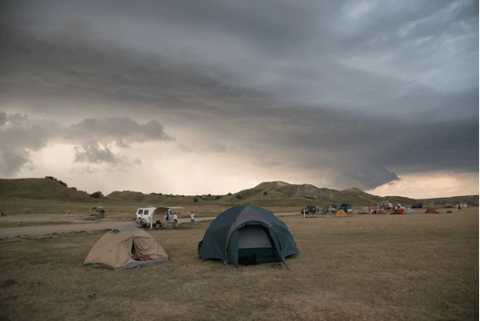
Wild encounters: Staying safe around wildlife
Wildlife is a big part of the camping allure, but it's important to remember that we're visitors in their home. Here's how to coexist safely:
- Store Food Properly: Use bear-proof containers or hang your food away from your campsite to avoid attracting animals.
- Keep Your Distance: Always observe wildlife from a distance. Getting too close can provoke them and lead to dangerous situations.
- Be Noise-Aware: Making noise can help avoid surprising animals, but also be mindful not to disturb them or their habitats.
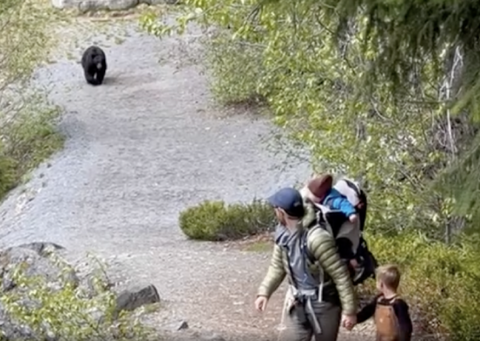
Lost and found: Navigating your way in the wild
Getting lost can turn an adventure into a misadventure real quick. Here are tips to stay found:
- Map It Out: Carry a physical map and compass. GPS is great, but technology can fail, and batteries can die.
- Stay Put If Lost: If you realize you're lost, stay where you are. It's easier for rescuers to find you if you don't move around.
- Leave a Plan: Always tell someone your camping plans, including where you're going and when you plan to return.
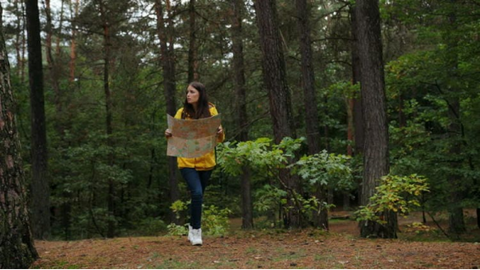
Fire safety: Managing Fires Responsibly
Campfires are an essential part of camping, yet they require significant responsibility. To prevent your campfire from turning into a wildfire, consider the following steps:
- Adhere to Campsite Regulations: Certain locations may have specific rules regarding fires. It's crucial to comply with these guidelines.
- Secure Your Fire: Utilize designated fire rings or pits and ensure your fire is positioned away from low-hanging branches.
- Ensure Complete Extinguishment: Prior to retiring for the evening or departing from your campsite, verify that your fire is thoroughly extinguished. Remember, if the remains of the fire are too hot to touch, they are too hot to be left unattended.
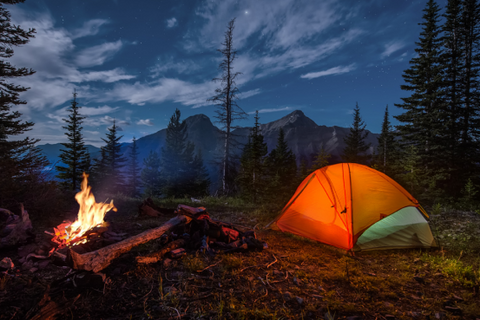
Injuries and accidents: Avoiding the pitfalls of the great outdoors
The wilderness is not just about breathtaking vistas; it's also the setting for potential injuries and accidents. Uneven terrain, sharp tools like knives and axes, and even the simple act of gathering firewood can lead to cuts, sprains, or worse.
- Pack a First Aid Kit: Ensure it's well-stocked and includes items for treating cuts, sprains, and burns.
- Stay Prepared: Familiarize yourself with basic first aid techniques. Knowing how to respond to injuries can make a significant difference.
- Use Tools Wisely: Handle knives, axes, and other tools with care. Ensure everyone in your party knows how to use them safely.

Water safety: Navigating aquatic adventures
Lakes, rivers, and even the ocean can add immense enjoyment to your camping experience. However, water bodies come with their own set of dangers, including drowning, strong currents, and cold water shock.
- Life Jackets Are a Must: Whether swimming, boating, or fishing, wearing a life jacket can save lives.
- Supervise Water Activities: Always keep an eye on children and non-swimmers near water.
- Understand Local Hazards: Be aware of and respect any posted warnings about currents, tides, or dangerous marine life.
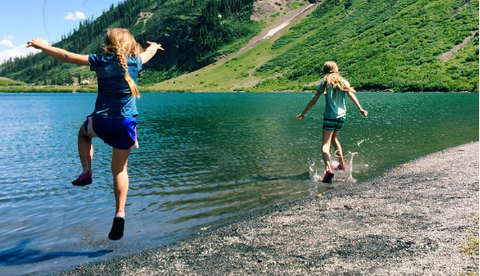
Food and water contamination: Ensuring healthy consumption
Eating undercooked food, improperly stored provisions, or drinking contaminated water can quickly turn a camping trip into a health nightmare. Foodborne illnesses and waterborne diseases are real risks in the outdoors.
- Store Food Correctly: Use coolers and insulated containers to keep perishables cold. Hang food away from the ground to protect it from wildlife.
- Cook Thoroughly: Ensure all meat is cooked to the recommended temperatures to kill any harmful bacteria.
- Purify Water: Treat water from natural sources before drinking. Boiling, filters, and chemical purifiers are effective methods.

How to prepare for a safe camping trip
Is camping dangerous? It can be. So, to ensure a memorable and safe adventure, it's crucial to prepare adequately. From understanding your environment through thorough research to packing wisely and taking necessary precautions against wildlife, each step is vital. Below, we outline key strategies for a well-prepared trip, including maintaining food and water safety and planning for unforeseen emergencies. Follow these guidelines to minimize risks and maximize your enjoyment of the great outdoors.
Educate yourself and research the area
Before you set foot in the wilderness, arm yourself with knowledge. Thoroughly researching your camping site will provide insight into what to expect and how to prepare.
- Understand the area’s geography, climate, and potential hazards.
- Learning about the local wildlife is crucial, not just for the thrill of potentially seeing these animals, but to know how to safely coexist with them.
- Additionally, familiarize yourself with the local regulations and guidelines—these could include fire regulations, wildlife protection laws, and camping permits.
Websites, guidebooks, and local ranger stations can be invaluable resources.
Pack essential items
The right gear can make the difference between a trip filled with great memories and one you’d rather forget. Essential items include:
- First Aid Kit: Accidents happen, so be prepared. Your kit should include bandages, antiseptic wipes, blister treatments, pain relievers, and any personal medications.
- Navigation Tools: A map and compass or a GPS device are indispensable for staying on track. Ensure you know how to use them before you head out.
- Weather-Appropriate Clothing: Conditions can change quickly, so pack for all scenarios — this means layers, rain gear, and sturdy hiking boots.
- Emergency Supplies: Include items like a whistle, multi-tool, flashlight (or headlamp), electric lantern, extra batteries, and a fire starter. A portable charger for your phone can also be a lifesaver.
Maintain food and water safety
Ensuring you have access to safe food and water is crucial:
- Food Storage: Use bear-proof containers or hang your food out of reach to avoid attracting wildlife. Keep your cooking area clean and store food away from your sleeping area.
- Preparing Food: Pack foods that are non-perishable and easy to prepare. If cooking, ensure food reaches safe temperatures to avoid foodborne illnesses.
- Drinking Water: Bring enough water or have a plan to treat water using filters, purification tablets, or boiling. Never assume water is safe just because it looks clear.
Avoid wildlife encounters
Wildlife encounters can be one of the joys of camping, but they can also pose risks. To minimize negative interactions:
- Store food and scented items securely.
- Learn the signs of wildlife activity in the area and know how to react if you encounter an animal. Generally, keep your distance, do not feed them, and store your food properly.
- Educate yourself on the specific recommendations for the wildlife in your camping area. If bears are common, bear spray might be a recommended precaution.
Plan for emergencies
Despite the best planning, emergencies can still occur. Being prepared means:
- Communication Plan: Let someone know your plans, including where you'll be camping and when you expect to return.
- Emergency Contacts: Have a list of local emergency contacts, including the nearest ranger station, hospital, and police station.
- Evacuation Routes: Know how to get out quickly if you need to leave due to a natural disaster or medical emergency.
- First-Aid Knowledge: Basic first aid skills can be vital in an emergency. Consider taking a course before your trip.
By focusing on education and research, packing the right essentials, ensuring food and water safety, taking precautions with wildlife, and preparing for emergencies, you can greatly reduce the risks associated with camping and enjoy a safer, more enjoyable outdoor adventure.
Embracing your camping adventure safely
So, is camping dangerous? It can be, but most risks are manageable with the right preparation and respect for nature. By following these essential safety tips, you're not just ensuring a safer camping experience; you're also contributing to the preservation and enjoyment of the great outdoors for future adventurers.
 MAX SHOWER
MAX SHOWER STORAGE BOX
STORAGE BOX SHOWER HOSE
SHOWER HOSE SHOWERHEAD
SHOWERHEAD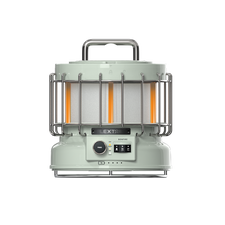 MAX LANTERN
MAX LANTERN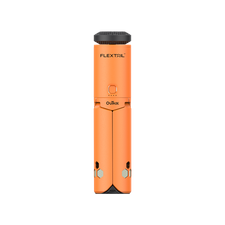 EVO LANTERN
EVO LANTERN R05 REGULAR
R05 REGULAR R05 MUMMY
R05 MUMMY ZERO PILLOW
ZERO PILLOW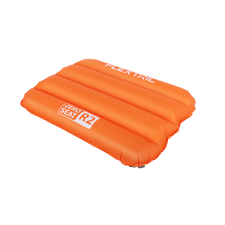 ZERO SEAT
ZERO SEAT COZY LOUNGER
COZY LOUNGER MAX COOLER
MAX COOLER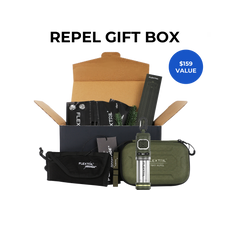 REPELLER GIFT BOX
REPELLER GIFT BOX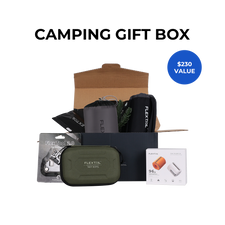 CAMPING GIFT BOX
CAMPING GIFT BOX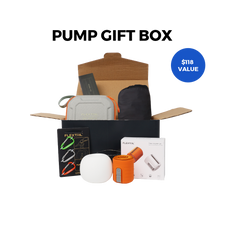 PUMP GIFT BOX
PUMP GIFT BOX VACUUM BAGS
VACUUM BAGS PROTECT COVER
PROTECT COVER LAMPSHADE
LAMPSHADE NOZZLE SET
NOZZLE SET 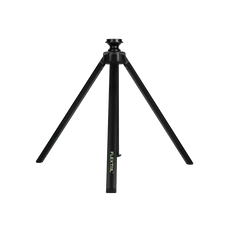 FLEX TRIPOD
FLEX TRIPOD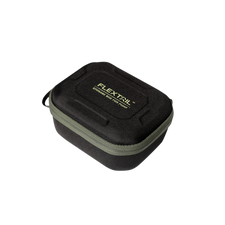 STORAGE CASE
STORAGE CASE BIG ANGLE NOZZLE
BIG ANGLE NOZZLE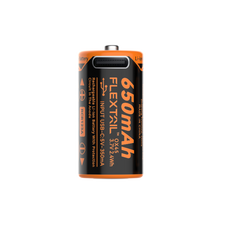 ZERO BATTERY 650CHT
ZERO BATTERY 650CHT CARABINER SET
CARABINER SET VACUUM BAGS & PUMP
VACUUM BAGS & PUMP  REPELLENT MAT
REPELLENT MAT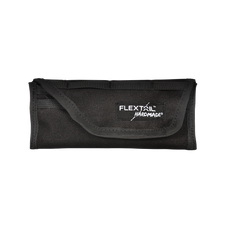 FLEX BAG
FLEX BAG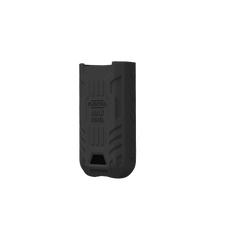 PROTECT COVER
PROTECT COVER  FLEX HANDLE
FLEX HANDLE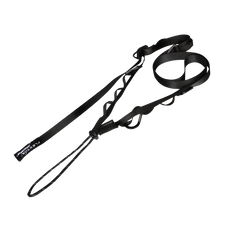 FLEX STRAP
FLEX STRAP Free 10pcs Repellent Mats
Free 10pcs Repellent Mats FLEX TOOL
FLEX TOOL COZY TOWEL
COZY TOWEL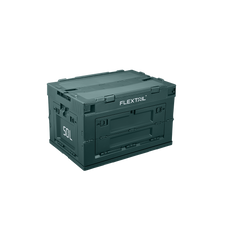 CAMPING STORAGE BOX
CAMPING STORAGE BOX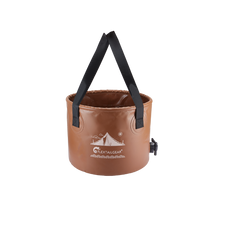 FLEX BUCKET
FLEX BUCKET EN
EN JA
JA
